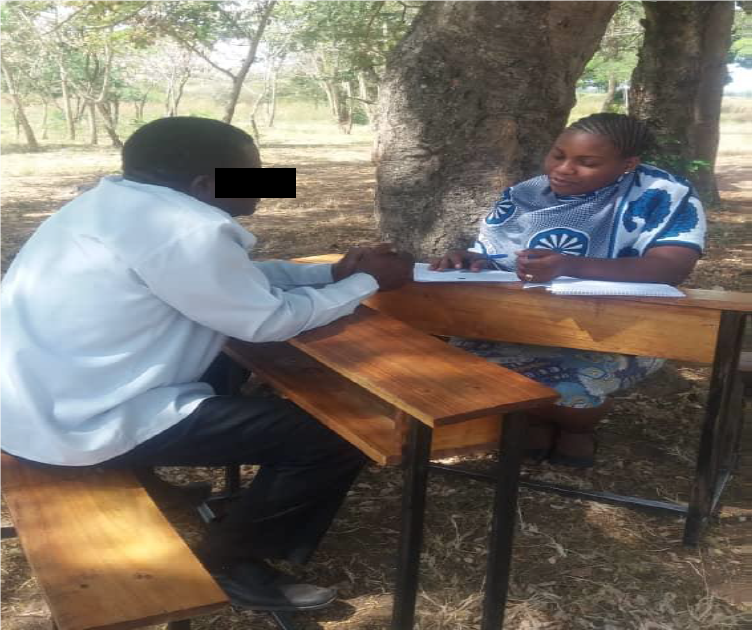Justina Mosha and Teckla Angelo, National Institute for Medical Research, Mwanza, Tanzania 07/09/2018
One of the main objectives of the Water Infrastructure for Schistosomiasis-Endemic Regions (WISER) Project is to identify the society at risk for schistosomiasis transmission and assess the water contact practices taking place within endemic settings. Community surveys were conducted in Misungwi district, Tanzania from 26th June to 31st July 2018. The aim was to collect primary data to assess the socioeconomic impact of schistosomiasis transmission in four selected communities namely Mwakalima, Nyang’holongo, Chole and Kigongo from Misungwi district, Mwanza region, Tanzania. Study participants were from the Sukuma ethnic group and their age ranged from 20-55 years. The villages lie along Lake Victoria. Fishing along the lake is one of the major sources of income generation for inhabitants of these communities. Community members also practice subsistence farming for food and cash crops. Crops like maize, sweet potatoes and rice serve as food crops while cotton is a cash crop.
The study used both qualitative (interviews) and quantitative (questionnaires) methods to obtain in-depth insight on people’s knowledge, perceptions and attitudes towards schistosomiasis. Socio-demographic characteristics of the recruited participants were analysed. The willingness of people to participate in initiatives for schistosomiasis control was also explored.
Data were collected by seven well-trained research assistants; five applied the quantitative method and two used the qualitative method. All interviews were conducted in Swahili. This allowed open communication and enabled participants to express their responses reasonably well and also freely give their views.
One of the male Focus Group Discussions (Chole village)
Consent to record the discussions and interviews were sought prior to the beginning of the session. Participants were given unique numbers and no personal identifiers were used in the study forms to ensure confidentiality. Participants were randomly selected from the identified communities to be interviewed.
A Research assistant administering a quantitative questionnaire to a female participant at Kigongo village
One of the Interviews with Key Informant (A member of village committee Nyangh’olongo Village)
The majority of participants were aware of the existence of schistosomiasis in their communities and were able to mention other diseases affecting them. For instance some participants pointed out schistosomiasis symptoms like passing blood in urine. They admitted to neither visiting health facilities for checkups nor taking any kind of medicine due to the long distance to these facilities and poverty. Generally the disease was viewed as a part of their life and a cause for poor health in children. Most of the interviewees also complained about lacking clean water sources in their local settings. Participants suggested that provision of safe and clean water for their daily activities in their communities will reduce schistosomiasis transmission.
Participants are in a great need of alternative ways to survive and rescue their life from schistosomiasis, since the main economic activities fishing and rice cultivation involves water contact.
The full findings of this study will be published at a later date.


